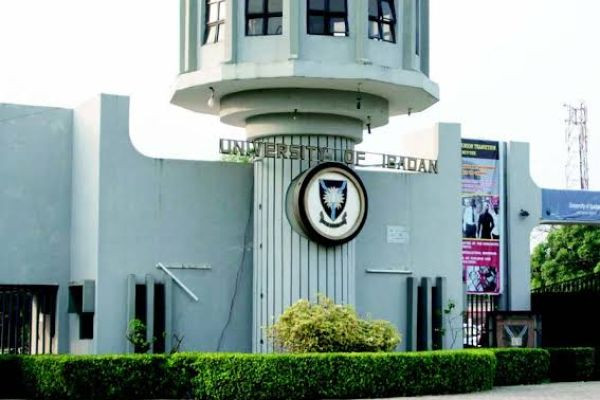The University of Ibadan (UI), Nigeria’s premier ivory tower, is at the center of a growing storm after affirming its decision to rusticate two students over what it described as “gross misconduct” during a student protest against rising tuition fees.
Despite widespread public condemnation, spirited activism from civil society groups, and an escalating outcry on social media, the university insists that the four-semester suspension of Aduwo Ayodele, a final-year History student, and Mide Gbadegesin, a 700-level postgraduate student, remains unchanged.
Their offense? Disrupting the 2023/2024 Students' Union swearing-in ceremony with placards demanding, “Fees Must Fall.”
The university's disciplinary ruling, handed down during a Central Student Disciplinary Committee meeting on July 14, found the students guilty of what it termed “unruly behaviour.” The protest, involving two other individuals — Nice Linus, a 400-level Law student, and one Adeyeye Oluwafemi, a non-student — was sparked by the university’s controversial fee hike in 2024, a decision that continues to reverberate through campus corridors.
“Due Process Followed” — University Holds Its Ground
Speaking to The PUNCH on Monday, UI spokesperson Dayo Olajide stated firmly that the university had followed all due processes in reaching its disciplinary decision. According to Olajide, unless formally addressed through the office of the Registrar or Vice-Chancellor, the institution would not dignify public sentiment with a response.
“The university has not come up with anything contrary to the four-semester rustication,” Olajide said. “Whatever you heard in the public domain is not addressed to the university. As far as we’re concerned, the matter stands.”
A letter signed by Senior Deputy Registrar, Akinbola I.A., made it official: both students were to be suspended for four semesters, effective from the second semester of the 2024/2025 academic session. The university, however, described the punishment as “compassionate,” warning the rusticated students to stay off campus during the period or risk police involvement and possible expulsion.
Beyond the rustication, the students are also required to undergo professional counselling and submit a written undertaking to “be of good behaviour and not meddle in Student Union matters.”
“Compassionate or Political?” — Students Cry Foul
Aduwo Ayodele, one of the suspended students, has signaled his intent to challenge the university's verdict, calling the punishment “an injustice wrapped in bureaucratic politeness.”
“I’m still reviewing the appeal option,” Aduwo said. “But how do you justify sending someone home for four semesters simply for holding a cardboard that says ‘School Fees Must Fall’? I intend to pursue every legitimate route to fight this injustice.”
For many, this case has become more than a disciplinary matter — it’s a flashpoint in the ongoing battle over access, affordability, and freedom of expression in Nigeria’s higher education sector.
Civil Society Fires Back: “A Chilling Message”
Human rights watchdog Corporate Accountability and Public Participation Africa (CAPPA) has sharply condemned the rustication, labeling it an act of “shameful victimisation” against students exercising their constitutional right to protest.
“Universities should be sanctuaries for ideas, dissent, and dialogue,” said Robert Egbe, CAPPA’s Media and Communications Officer. “By punishing these students for peaceful protest, UI is sending a chilling message — conformity is rewarded, dissent is criminalised.”
The statement went further to describe the students as “principled scholars” who embodied the true spirit of democratic citizenship.
Echoing this stance, the Education Rights Campaign (ERC) called the action a “blatant disregard” for democratic principles, urging students and workers across Nigeria to mobilize in defense of the affected students.
“This is not just an attack on Aduwo and Gbadegesin — it’s an assault on the rights of all Nigerian students,” the ERC stated. “We demand the immediate and unconditional reinstatement of the rusticated students and a reversal of the fee hike.”
Beyond UI: A Larger Crisis in Nigeria’s Education Sector
This development at UI, though isolated in context, is symptomatic of a broader crisis in Nigeria’s public education sector — one where increasing fees, dwindling government funding, and stifled student voices form a toxic mix.
As debates rage on about the limits of student activism and the responsibilities of university authorities, the University of Ibadan finds itself walking a tightrope between maintaining order and suppressing dissent.
For Aduwo, Gbadegesin, and their supporters, the coming weeks may well determine whether this moment becomes a footnote of repression — or the spark of a new student-led movement.









